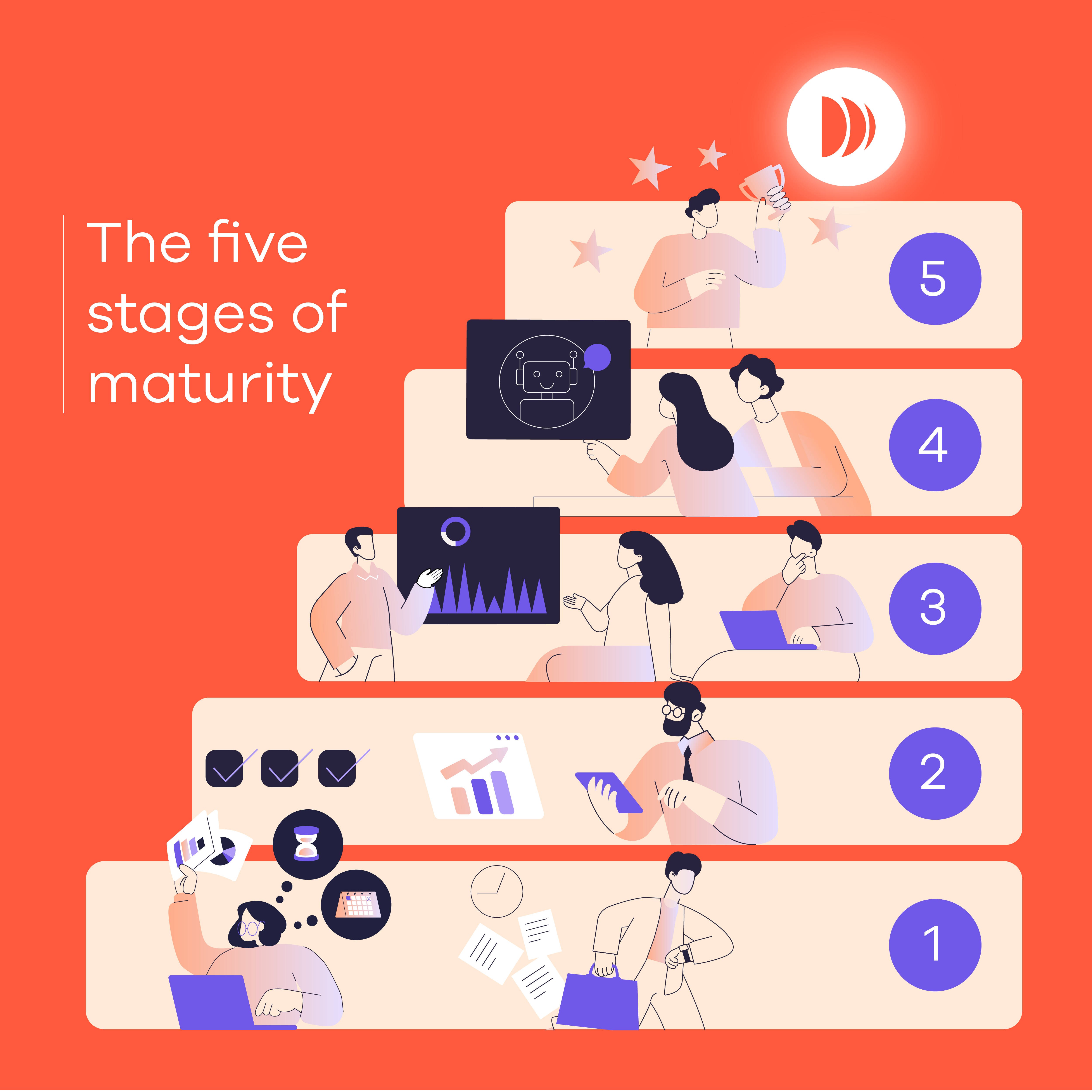Request a Dayshape demo
Get in touch and learn first-hand how Dayshape can help boost profitability, improve client service, and keep your teams happy.
Platform
Strategic resource management
Optimize margins. Grow revenue.
Plan reliably. Act confidently.
Inspire teams. Delight clients.
Enterprise scalability
Use Cases
How Dayshape helps firms
10 ways for resource managers to elevate their impact

Elevate your role, expand your influence, and drive impact across your firm.
Listen nowCustomer Success
Value at every stage
Company
More about Dayshape
Resources
Learn more
Resources
Featured resources
Resource Management Maturity

The complete blueprint to transform your resource management.
Learn moreThe rise of big data, machine learning and AI is transforming professional services. These technologies are enabling efficient, evidence-based decision-making, but they also pose ethical challenges to practitioners.
In 2017, ACCA carried out a survey of attitudes to ethics among 10,000 professional and trainee accountants and over 500 C-suite executives. More than 8 in 10 expressed the view that strong ethical principles and behaviour will become more important in the digital age.
Of course, ethics has always been a critical component of the accounting profession. But now the complex relationship between ethics and technology is coming under increased scrutiny, with major implications for accountancy firms and the people who lead them.
How can practitioners navigate this issue? We’ve identified three key areas to think about.
“Technology” is a term that covers many different operational fields. But whether working on cybersecurity, big data, distributed ledger technology, automation, AI and machine learning, or all of the above, people in your organization need to be aware of the challenges, not just the opportunities.
These technologies enable practitioners to make rapid decisions based on empirical evidence. But they’re only as good as underlying data inputs. Furthermore, systems learning from real-world data can perpetuate systemic biases and errors. For this reason, data integrity is paramount. Outputs predicated on biased data can lead to discriminatory outcomes, or simply bad advice.
Practitioners should focus on data integrity, monitoring and assessing the provenance of the data they’re using and its quality. This means maintaining a healthy dose of scepticism, and interrogating the systems and processes that drive the collection, management and analysis of data.
Of course, this is easier said than done. A mindful, firm-wide approach to data integrity can’t be achieved by order of the management; it relies upon the right kind of culture, one that can only be achieved through investment in education and a focus on accountability.

As technology becomes more sophisticated and automation becomes more prevalent, the onus is on managers to ensure that their people have a firm understanding of how it works. In order to judge the quality of a decision made by a machine (and assess whether it should be recommended to a client), practitioners need to have a decent grasp of how the machine came to that decision.
This is also crucial to individuals’ sense of professional pride and self-confidence, helping to maintain morale across the wider organization at a time of great technological change and adaptation. There are no easy solutions, but delivering understanding through education can help to reduce insecurity.
Questions are being asked about the role of human judgement in interpreting data. It’s unclear at this stage how much emphasis we should place on technology, and how much we should place on human decision making. But one thing is certain: the nature of the decision-making process will come under increased scrutiny going forward.
This is going to have knock-on effects for relationships, both internally and externally. Machines now play a pivotal role in analyzing data and making decisions, but that doesn’t mean accountants can abdicate responsibility for poor advice. Managers need to make it clear that they expect people to stand by decisions, even those based on recommendations from algorithms.
This focus on accountability encourages alignment of interests between the organization, its people, and its clients. And it compels practitioners to think very carefully before advising clients based on data-driven insights. Focusing on creating a robust culture that promotes accountability will pay off over the long run, helping firms to avoid negative headlines.

Despite the ethical challenges, automation promises huge benefits for accounting firms, enabling them to optimize talent for strategic work and improve people’s working lives. Strategic thinking will always be important, but organizations must embrace new technologies to drive better outcomes for staff and clients.
When implementing these new technologies, it’s important to communicate with individuals and teams. Change management will be key, focused on explaining the benefits for your people and reassuring them that automation can improve how they work. This means understanding their motivations (see Dan Pink’s TED talk on The Puzzle of Motivations) and investing in education and training that clarifies and simplifies these complex issues.
It can also be helpful for management to define high-level ethical principles for the organization. These should go beyond the professional accountancy code, fleshing out guidance on how these principles should be interpreted in real-world scenarios. They should also define the terms of how to respond when things go wrong.
A progressive approach to technology doesn’t have to mean compromising on ethics. By focusing on data integrity, education, and accountability, organizations can build awareness and confidence. And by doing that, they can unlock the power of new technologies.
Get the latest insights and updates delivered to your inbox weekly.
Explore our latest insights and strategies for success.

8 min read

4 min read

4 min read
Discover how AI can transform your resource management and enhance your project delivery.

Get in touch and learn first-hand how Dayshape can help boost profitability, improve client service, and keep your teams happy.
